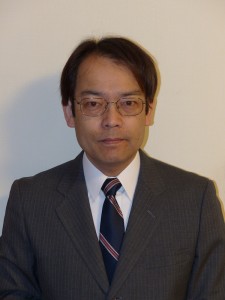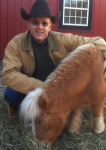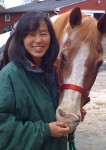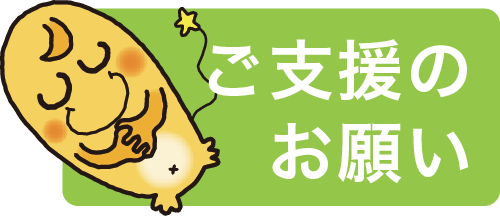|
|
||||||||||||||||
Symposium Ⅸ
Teaching Children that All Life is Precious:
Nara Prefecture’s “Inochi” Education
Date: Sun.20th July 14:00 ~ 17:00
Venue: Kitano Meeting Room
Organiser: Nara Prefecture Uda Animal Park Promotion Office, Japan Animal Welfare Society, PIIA Knots
Purpose: Although achievement of food safety has long been called for in farm animal breeding, the situation where animal welfare must be taken into consideration is now imminent. In this symposium, we will be discussing on whether welfare of farm animals and safety of the animal products are a trade-off (or incompatible) or whether they can have a synergistic relationship, thereby addressing how the farm animal breeding of Japan should cope with the current situation.
Chairperson’s Message
Masahiro AMAGASE
![]()
An associate professor of psychology at Nara Women’s University
We must abandon a traditional humanistic thought about ethics and have another basis of it. The traditional humanistic thought sorts us out from animals, and gives only us the dignity. It bases on the belief that only we have rational cognitive ability. The cognition, however, is not made up by “soul” or “mind” in the brain which observes the outer world. It consists in attuning to ecological laws through various physical activities (“embodiment”), direct experience of activities in the environment. We do not differ in this point from animals. Therefore, we (including animals) shall have our dignity in the adaptive coupling of the environment and us, i.e., our better way of living. On the basis of the fact, we must radically reconstruct ethics.
Ethics should, conversely, ensure our dignity and show our better way of living, i.e., our well-being or welfare. In order to realize human welfare, for example, we must at least take into account human body functions and structures, activity, and social participation (e.g., see the WHO’s International Classification of Functioning, Disability and Health, ICF). This just applies to animal welfare. To think the welfare of animals needs the understanding of physiology and ecology of various animals, i.e., their way of living.
To learn animal welfare, children need to take practical lessons in animals’ way of living. Any way of living can be acquired only through direct experience of living. Thus, to teach children animal welfare, we must give them opportunity to spend time with animals. I have high hopes for both the education programs at Green Chimneys School and at Nara Prefecture Uda Animal Park.
Experiential education in Humane and Animal Welfare education
— International perspective on the Cutting Edge approach
to Humane Education.
Michael E. KAUFMANN
Director, Sam and Myra Ross Institute Nature Based Programs at Green Chimneys
Miyako KINOSHITA
Education Program Manager, Green Chimneys Farm and wildlife Center Sam and Myra Ross Institute at Green Chimneys
![]()
 |
 |
At Green Chimneys School, one of the most effective ways to teach children respect for animals, kindness to nature and understanding of other living beings is to give them opportunity to experience these things directly. The concept and data validating “experiential education” in many subject areas supports applying this approach to having children directly work with animals and nature. Concepts such as “kindness to animals” by themselves are very broad and often not defined very well, especially when children are not exposed to be with animals regularly. This presentation will give an overview of the strengths, weaknesses and opportunities in humane education for children, why this concept even matters and what it seeks to accomplish. The presentation will use the animal and garden programs of Green Chimneys as a departure point, but will give a broader cross cultural perspective of humane education and how that experience could be adapted, applied and employed in the Japanese context.
Nara Prefecture “Inochi” Life Education Program Project
 |
Keiko FUJII
![]()
Veterinarian / Nara Prefecture Uda Animal Park Promotion Office
Self-governing organizations all over Japan working in animal care and control have provided a number of educational animal care programs over several decades with an aim to reduce the number of kills, prevent animal-related danger, and promote the importance of ‘life’. Unfortunately however, unlike in the West where animal welfare is regarded as the key factor in animal-related education, these programs have not included ‘animal welfare’ at their core. We at Nara Uda Animal Park therefore came to recognize the vital importance of patiently providing an education style, new to Japanese people, to foster a greater sense of appreciation for animals and to shape attitudes towards them based on animal welfare concepts. So, we developed a new ‘Inochi Education’ program that fosters a Japanese attitude to treasuring and caring for all forms of life at its core while fusing this attitude with humane considerations. The keywords used within the program are ‘awareness’, ‘empathy’, and ‘responsibility’. The program consists of being aware of the animals around us, empathizing with their lives (‘inochi’), and being ever mindful of the responsibilities we have for those lives. Throughout the program, by putting a focus on the animals, empathizing with others and nurturing a spirit that treasures every kind of life, we aim to develop richer human characteristics and thereby enrichen communities. Furthermore, by acting as the transmission base for this new form of humane education we would like to take on a greater role in connecting people with animals, and people with people, and achieve this by joining forces with fellow professionals, kindred spirits and organizations.
Case studies from“Inochi” Life Education Program
Veterinarian / Assistant Section Chief, Wakayama Prefecture Animal Welfare Center
To serve as a base for rabies prevention and to provide administration for animal welfare and control, Wakayama Prefecture established the ‘Wakayama Animal Welfare Center’ in 2000. In addition to conducting both animal protection and control work, which also necessitates destroying animals sent from prefectural health centers, the Center provides various promotional programs. One of these is a permanent exhibition through which our community can learn about animal welfare in an engaging and fun way. They can also find out about our adoption program for cats and dogs, hear lectures on proper animal care, join discipline classes or 1-day vet experience classes and events. Of special note is the ‘WAW Class (Wakayama Animal Welfare Class) – one of our major promotional activities targeting elementary school children. The aim of the program is to enrich the inner development of children through learning about the reality of abandoned animals, experience contact with dogs, and appreciate the importance of ‘life’ and relationships with others. There are ten kinds of class and we tailor them to suit the needs and requests of each school (in terms of frequency and content). The WAW Classes started in 2002 and to date more than 15,000 children have taken part. Recently, one of the elementary schools which utilizes our WAW Class also decided to hold ‘Inochi (Life) Education’ lessons, as developed by Nara Prefecture. Between the period May 2013 and February 2014, 10 lessons have been given to 63 Year-3 students. Of these 10 lessons, 3 were ‘Inochi Education’ lessons and the children learned how to communicate with a dog and about the situation that stray dogs and cats encounter. They gained a very good understanding of their human link with, not only pet animals, but also farm and wild animals. They had the opportunity to think about what
they can do so that such animals can live more happily. They were able to exchange ideas and gain a great deal from the time provided. I believe we should increasingly introduce ‘Inochi Education’ as part of the ‘WAW Class’ curriculum in the future.


